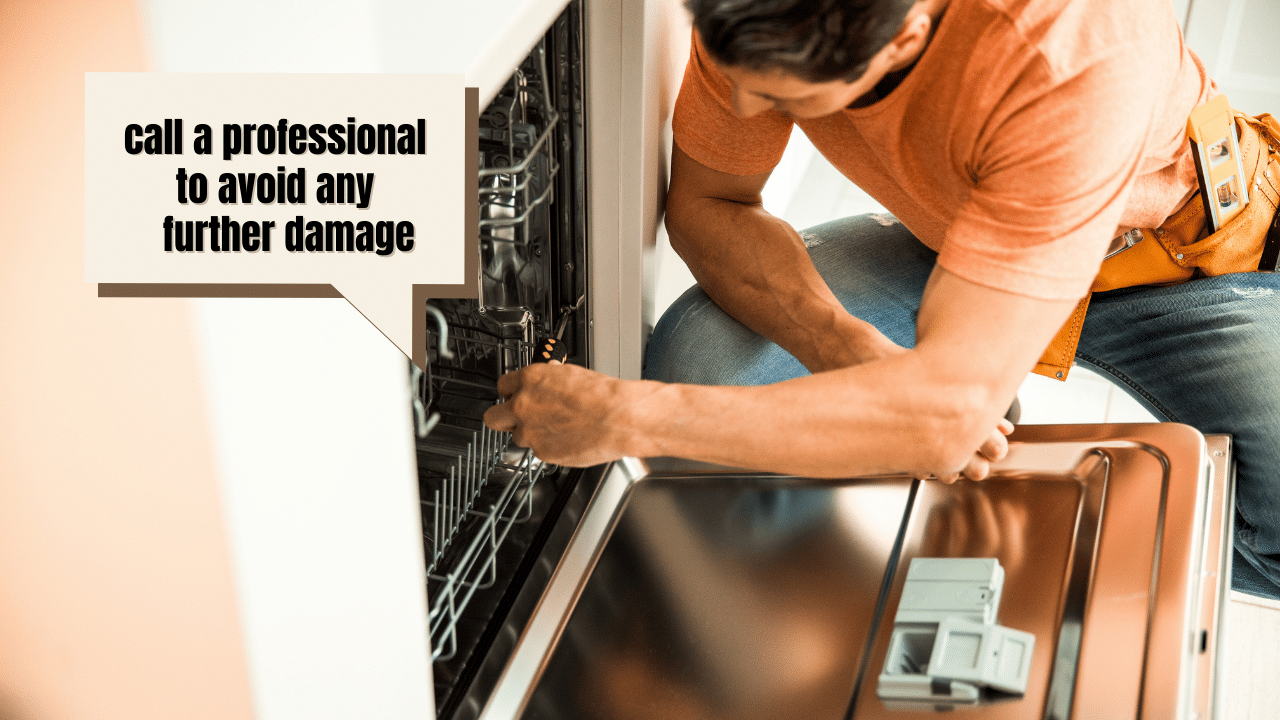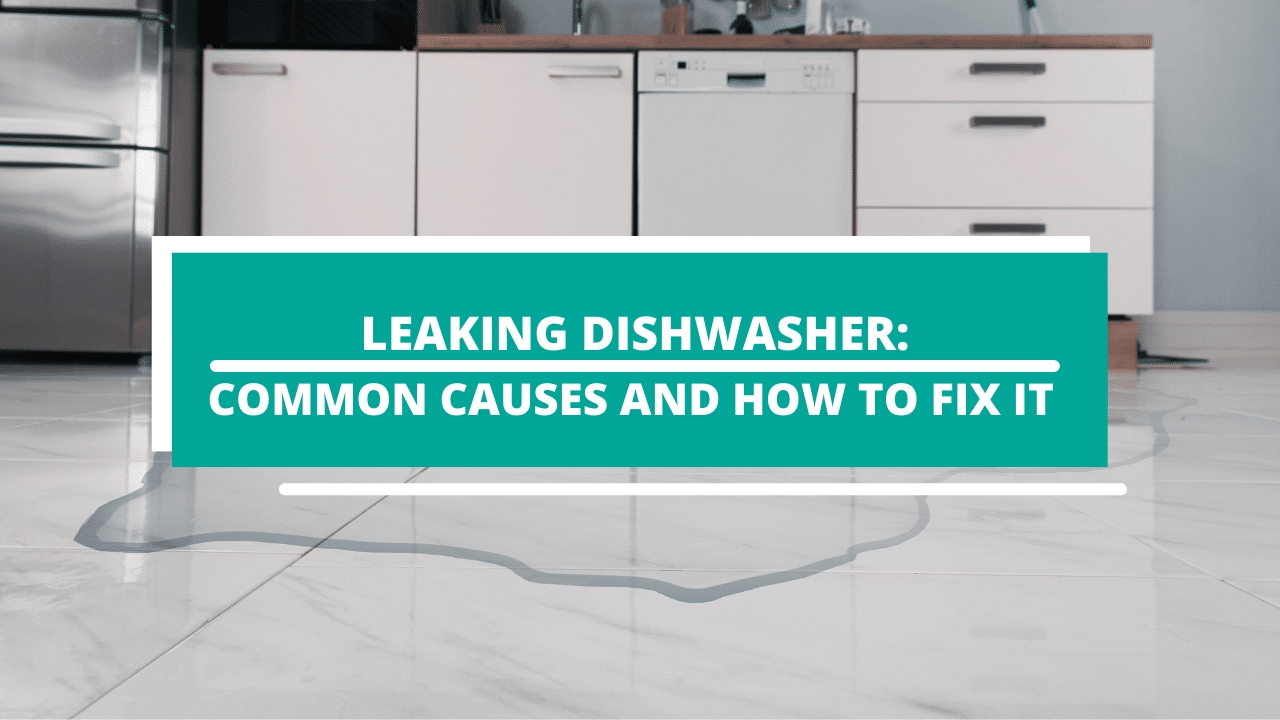A standard that your kitchen must always fulfill is that of hygiene. No one wants to cook the food that they're going to eat in a place that reeks of dirt and spoiled food. And that concern even extends to appliances that don't work well.
It can be a nuisance to your kitchen workflow when your kitchen appliances are not serving their purpose, especially if you talk about basic appliances like your dishwasher!
One of the most common problems that homeowners/restaurant owners experience with their dishwasher is having a leaky system. When water pools down the floor, it is not only unhygienic, but it is also dangerous because people might slip and fall when they're running around the kitchen to cook.
Hence, it's important to understand how your dishwasher turns leaky and some simple repairs that you can opt to do at home in certain situations.
Common Causes of a Dishwasher Leaks
There are 8 usual causes why you have a leaking dishwasher:
1. Over-filling
The easiest culprit to spot when you're trying to figure out why your dishwasher is leaking is to check if you've overloaded the water capacity. Doing so will disallow your machine to drain properly, thus leading to the excess water leaking out.
Quick Fix: Don't overload your dishwasher and follow the user manual for the gallons of water your dishwasher can take.
2. Broken Dishwasher Door
If the puddles of water are directly pilling up under your door, then you can be 99.99% certain that it's because of a faulty dishwasher door. This happens over time, though. Because dishwashers ought to move in turbulent mechanical motions, screws might get loosened, and the door latch might become misaligned.
Quick Fix: Using an epoxy patch kit or replacing loose screws will usually do the trick. But, if you think that the seal is gone for good, then it'd be best if you would replace it. If you find loose hinges, try to tighten them in place so that the water won't filter through the dishwasher.
3. Placement and Alignment Issues
The reason why you're probably experiencing a leaky dishwasher might be as simple as the fact that you put your dishwasher in an unlevelled area.
Quick Fix: If your floors are unlevelled, then you can just create/buy a level to perfectly level the base of your dishwasher.
4. Shabby Dishwasher Gasket
The gasket is the most purposeful part of the dishwasher to prevent leaks from coming from the base. If you're not familiar with it, it's the rubber sealing stuck that should be glued well on your door that prevents water from leaking out.
Quick Fix: Sadly, the best option for you is to replace your worn-out gasket. The good news is, though, it's not that expensive, and it doesn't take much effort to do so.
5. Using Regular Dishwashing Soap
As tempted as you would be to use normal dishwashing soap, do not do it. Because if you did, then it's likely the reason why your dishwasher is leaking so much. The non-compatible detergent solution will bubble up and put force on the door seal, which may cause it to wear out and leak.
Quick Fix: Use dishwasher-friendly soap. It creates less to no foam, so you won't have to worry about the bubbles wearing out your door seal.
6. Loose and Damaged Valves
As time goes by, your regular use of the dishwasher may cause the inlets and wiring the get damaged due to corrosion, or they might get loosened up because of the mechanical movement. Parts like the drain hose may not be properly fitted anymore, which may explain why the water gets everywhere.
Quick Fix: Do a regular check on your drain hoe (and yes, that includes the clamps holding the hose in place on either side) and also assure that your water inlet valve isn't blocked or stuck because if it is, then that's what's causing all the flooding. If you see any cracked hoses, then you can just take a quick walk to the hardware to get a new one.
7. Faulty and Damaged Dishwasher Tub
Aged dishwashers are likely to experience a damaged tub once it has reached their prime. Be it that the material was corroded because of accumulated minerals and detergents, or a literal gaping hole was formed, which may explain the leaking. Once the dishwasher tub gets damaged, expect water to seep through to the bottom of your dishwasher, which causes the puddles of water that you see.
Quick Fix: You can always call a mechanic to replace your dishwasher tub, but if you can fix it on your home with some sealants, then you could try! But sometimes, it's time to say goodbye and buy a new one.
8. Obstructed Filter
One of the most widely recognized issues for water under a dishwasher is the channel where the water depletes out to be obstructed. Since practically all dishwashers are inclusive of a filter that catches food particles before they fall into the drain, this channel can become stopped up. At the point when a dishwasher filter is stopped up, water backs up and out of the dishwasher bowl.
Quick Fix: Detach your filter from your dishwasher and wash it with a soft-bristled brush with warm water and dishwasher-friendly detergent soap. Do not use any harsh chemicals because they may corrode the material of your filter.

Conclusion
Keeping your dishwasher in good condition is optimal for the productivity of your kitchen. No one likes to work in a kitchen that smells of last week's dishes, so having a dishwasher up-and-running is really handy for people who want to focus their full time on cooking. By knowing these usual suspects, you can better care for your dishwasher's health, which will allow it to run better and longer. Also, by knowing how to quickly fix up the mishaps when they happen, then you'd save yourself some time and money by doing it on your own. (Related: Kitchen Remodeling: A Cost & Consumer Guide)
In the end, if you're not sure about fixing the dishwasher on your own, it's best to call a professional (especially when you have disassembled things) to avoid any further damage to your unit.

